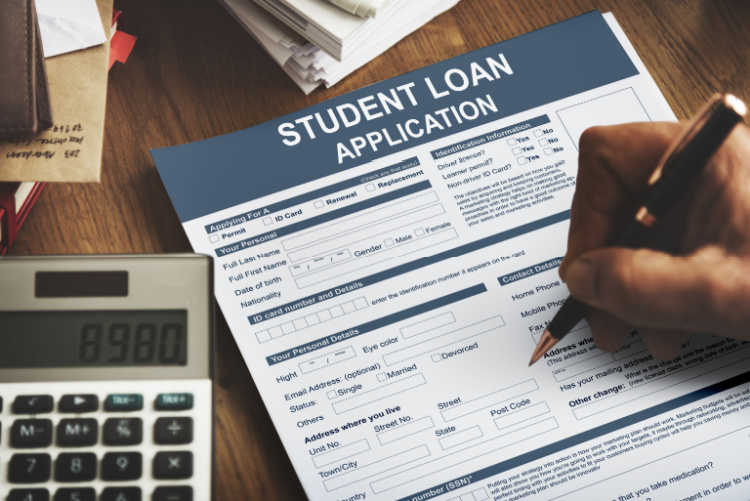Are You Better Off Saving For A Down Payment Or Paying Off Your Student Loans?
You’d like to start looking ahead and making plans to buy your first home, but there’s something in the rearview mirror that’s clouding your vision: your student loan debt. You keep turning over the same question in your mind: Should you pay off your student loans more quickly or save up for a down payment on a home? And is it even possible do to both? That may not be a million-dollar question, but it can turn out to be a cost-saving one.

Choosing To Save For A Down Payment First
If you’d like to save for a home down payment first instead of paying off your student loan, you can choose from several home loan options. Keep in mind, however, that nearly all of them require a down payment.
If you’re hoping to obtain a conventional home loan without the extra expense of private mortgage insurance (PMI), you’ll need a down payment equal to 20% of the selling price. With a down payment of less than 20%, mortgage insurance will add between 0.3% and 1.5% to the cost of the total loan.
Federal Housing Administration (FHA) loans require only a 3.5% down payment but bear in mind that these loans generally come with a higher interest rate and also require mortgage insurance.
A Conventional 97 loan offers a low down payment option: The 97 refers to the loan-to-value (LTV) ratio, where you are able to borrow up to 97% of your home’s value. For former military service members, the Veterans Administration (VA) provides home loans that require no down payment and that also offer additional benefits.
The benefits of saving up for a down payment first include:
(1) You may qualify for student loan forgiveness or an income-based repayment plan that will lower your monthly payments.
(2) Having student loan debt isn’t as bad as carrying other types of debt; student loans have longer repayment terms and usually come with lower interest rates.
(3) Interest paid on student loans (up to $2,500 per year) is tax-deductible.
(4) A significant down payment will help to lower the overall cost of your mortgage; it might be more advantageous to save for a home rather than pay off a low-interest student loan.
(5) Housing prices, home loan interest rates, and rental costs could continue to rise.

Deciding To Pay Off Student Loans First
Have some lingering doubts about whether to pay off your student loan before saving for a down payment for a house? Here are some reasons to address how much you owe in student loans before you start looking for your dream home.
The benefits of paying off your student loan first include:
(1) When you pay off a student loan, the debt is entirely erased from your credit report; student loans aren’t a significant factor in your credit rating, but they do factor in.
(2) The longer you wait to pay off student loan debt, the more interest you’ll end up paying.
(3) If you have a student loan with a variable interest rate, your payments may increase over time, costing you even more.

Deciding You Want To Save For A Down Payment And Pay Off Student Debt At The Same Time
It might not be easy, but that doesn’t mean it’s not doable: You could opt to save for a down payment while at the same time paying down your student loan debt. By sticking to some–or all–of the following guidelines, you may be able to accomplish both of your financial goals simultaneously.
First, Pay Off High-Interest Debt
Pay as much as you on loans or debts with the highest interest rate, making sure to pay at least the minimum due on all the rest.
Consolidate Or Renegotiate
Consider consolidating or refinancing your student loans in order to lower payments or to take advantage of a lower interest rate.
Separate Your Savings
Avoid temptation and put your down payment savings in a separate savings account, preferably one with a high-interest rate.
Keep Paying Student Loans
Seeking a deferment or forbearance of your student loans isn’t recommended; although it might not hurt your credit rating, the loan will continue to accrue interest that will add to the overall cost of the loan.
Set Up An Emergency Fund
As a general rule, it’s a good idea to have an emergency fund that equals three to six months’ income and retirement savings; in that way, you’ll have funds available that will enable you to continue paying for essentials, keeping current with bills, and making loan payments if you unexpectedly find yourself without a source of income.
